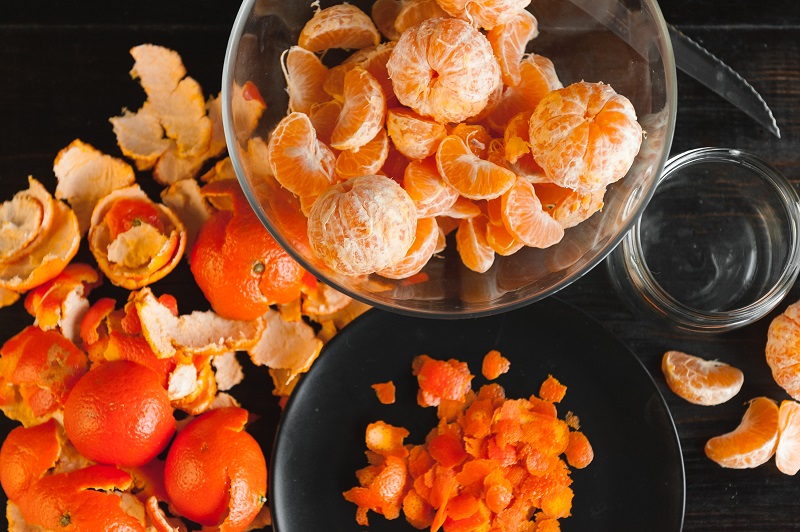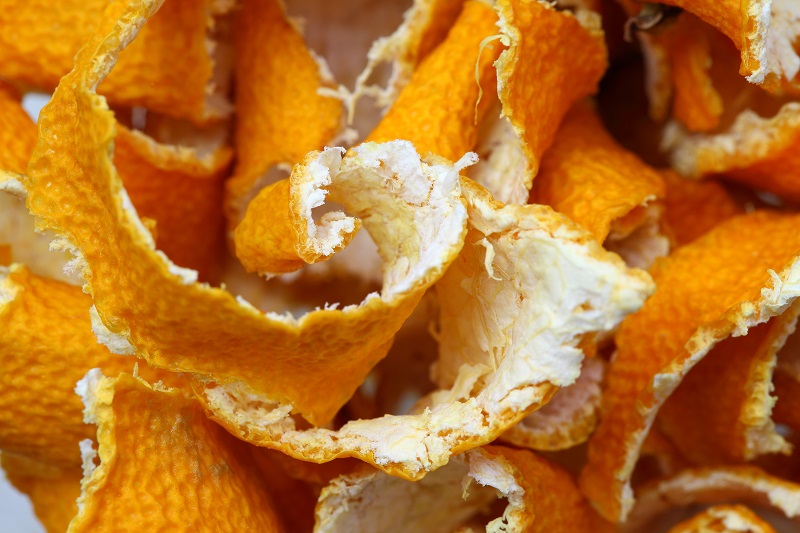Tangerines have much more to them than their happy, warm and sweet looks and colour. Tangerine essential oil has many healing effects: it is an antiseptic, soothes the nerves, invigorates, reduces irritation, acts as a light sedative, reduces arterial tension, stimulates blood circulation, improves digestion, prevents putting on excess weight, increases immunity, and removes toxins from the body. The fragrance of tangerines gives energy, removes tiredness and stimulates the metabolism and the immune system.
The health benefits of tangerines
Tangerines usually don’t contain nitrates and they are full of vitamins C, D and K, the latter being responsible for the elasticity of the blood vessels. Tangerines boost metabolism, remove excess fluids, burn fat and are hypocaloric (contain 42 cal per 100 g). Eating 3–4 tangerines daily will prevent colds and flu. Tangerines are also rich in bioflavonoids that contribute to the assimilation of ascorbic acid.
The consumption of 3–5 tangerines a day is the perfect prevention for intestinal infections, food poisoning and indigestion. 10–20 drops of tangerine peel tincture eaten 15–30 minutes before meals improves the appetite and the digestion.
Pour 2 cups of hot water over 3 tablespoons of dried tangerine peels. Infuse for two hours and then strain and add 2 tablespoons of honey. Drink the infusion hot in 1/2 glass doses four times a day to treat colds or bronchitis.
Crush 100 g tangerine peels and 20 g licorice roots. Pour on 2 cups of water and boil for 30 minutes at low heat. Strain and divide the liquid into two equal portions, and drink in the morning and in the evening. This infusion has anti-inflammatory properties and is beneficial in treating mastitis.
Tangerine peel infusion helps reducing blood sugar levels. Cook the peels of three tangerines for 10 minutes in a liter of water. The infusion needs to be kept in the fridge and consumed every day. Fresh tangerine juice kills several types of fungi. Apply the tangerine juice on the affected area.

Beauty care with tangerine
In cosmetics the juice, the flesh and the peel of tangerines are frequently used to treat dry skin.
Lotion for greasy skin. Grate the whole fruit, add 1/2 glass of vodka, infuse in a dark place for one week and then strain. For normal skin, dilute the lotion with 2–3 tablespoons hot water and a teaspoon of glycerin.
Juice for all types of skin. Soak a piece of cotton in fresh tangerine juice, wipe off your face and then apply several layers of paper towels dipped in tangerine juice and leave them on your face for 15 to 20 minutes. After the treatment, wipe your face with a wet towel. The length of the treatment should be 15–20 masks, 2–3 times a week.
Mask for dry and normal skin. Apply on your face a mixture of tangerine flesh 2–3 times a week for 15–20 minutes. The duration of the treatment should be 20 procedures. It is recommended to mix the flesh with honey, fresh cream or an egg white.
Rejuvenating citrus water for all types of skin. This solution helps to tighten the pores. Place the tangerine peels into a ceramic bowl and pour on cold boiled water. Cut the peels into smaller pieces in the water. Leave the infusion covered for a day and then strain. You can wipe your face with the citrus water in the morning and in the evening.
Invigorating tangerine peel mask. Dry and crush the tangerine peels. Mix 1 teaspoon powder with 1 teaspoon egg yolk and 1 teaspoon cream. Apply this mask onto your skin and neck for 20 minutes and then wash it off with warm water.
Hydrating hair mask. You will need the juice of two tangerines, ten drops of Melissa oil and 1 teaspoon mustard. Mix all ingredients and apply on the entire length of your hair. Wash your hair with shampoo for after 20 minutes. Tangerines contain vitamin C and ascorbic acid, which contributes to the hydration of the hair. Melissa and mustard normalize the secretion of sebaceous glands and remove dandruff. Mustard is a natural antiseptic which absorbs grease from the surface of the scalp.
Did you know?
One tangerine contains 26 mg calcium and 12 mg phosphorus which fortifies the bones and teeth, and 8 mg magnesium which ameliorates certain nervous states. Scientists have found that this winter fruit reduces the development of liver cancer, viral hepatitis, diabetes and severe affections of the circulatory system.


